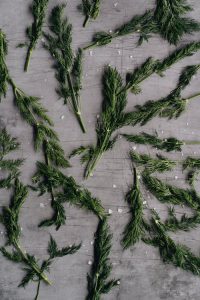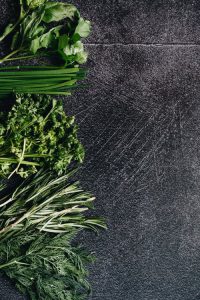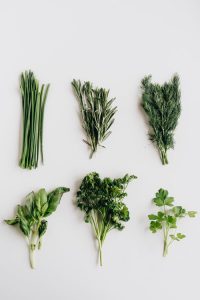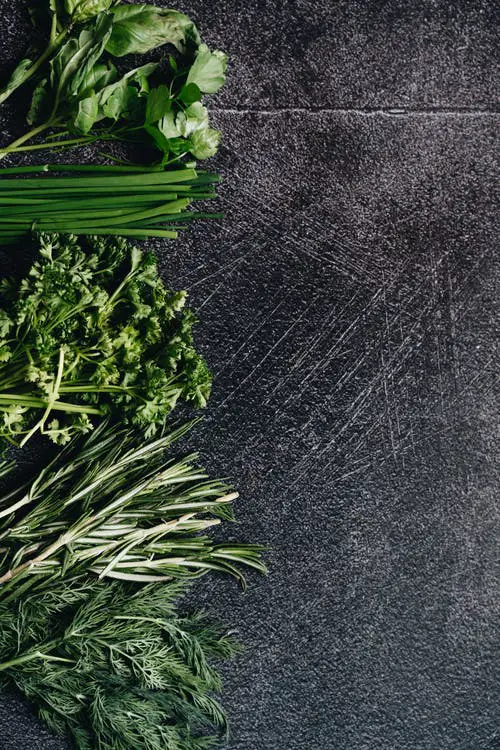Nootropics: 6 Brain Boosting Herbs to Support Cognitive Health
Whether you want to improve focus and concentration, improve memory, or protect your brain from decay, herbal medicine has a lot to offer you.
Nootropics are becoming an increasingly trendy topic, and for good reason. These are herbs or nutraceuticals that help improve memory, concentration, attention, and learning while mitigating and protecting against cognitive decline.
Nootropics also help support mood, sleep, and mental health. Below are five of our favorite nootropic herbs.
Understanding and preserving information are physical processes, and they can be accelerated by a well-chosen diet.
We have compiled a list of foods that promote active brain function, improve concentration and memory.
But first, What are cognitive functions?
Cognitive (mental) capabilities are the highest functions of the brain that enable a person to be human. These include thinking, spatial orientation, understanding, computing, learning, speaking, reasoning.
The first signs of a decrease in these abilities are impaired attention and memory.
If the condition continues to worsen, signs suggesting mild cognitive impairment may appear, and dementia may even develop.

What factors contribute to cognitive decline?
- External factors: lifestyle, stress, physical stress, unhealthy diet
- Internal factors: reduced blood circulation, reduced supply of oxygen and nutrients to brain cells, harmful free radicals that cause damage to brain cells.
Rosemary (Rosmarinus officinalis)
Rosemary is one of our finest culinary herbs, but it is also an excellent herbal medicine and nourishes the nervous and cerebrovascular systems.
Rich in terpenes, phenolic acids and flavones, rosemary has a strong aroma and powerful antioxidant.
It is energetically warming and slightly bitter, making it a great product to consume as we begin to move into the cooler months.
Rosemary supports cognition, memory, and alertness by giving us that mental feeling of being “on”. There are many ways to incorporate rosemary into your daily routine. Rosemary essential oil can be sprayed.
In cooking, rosemary can be used both fresh and dried, infused in olive oil or vinegar, or in combination with herbal seasoning salt. Rosemary tea is delicious as an afternoon chill, while rosemary can be found in tincture and capsule form.
Melissa (Melissa officinalis)
Melissa is incredibly nutritious for the nervous system. It soothes and maintains mood and increases alertness.
This helps to increase the speed of learning. Energetically, lemon balm cools and helps us to restore our health center, ground and tune the nervous system in the right way.
It can lift your spirits and help protect your aging brain. Melissa is delicious and magical in any form – tinctures, herbal syrups, liqueurs, capsules, fresh herbs, etc.
Gingko (Gingko biloba)
Gingko biloba is a powerful antioxidant rich in flavonoids and proanthocyanins. It is a vascular tonic and neuroprotector.
Energetically slightly bitter and cooling. Gingko is a classic example of the doctrine of signatures, in which structure or appearance explains function: gingko leaves have a distinct bifacial symmetry, reminiscent of the brain.
As an antioxidant, it helps protect the brain from oxidative stress and the aging process. Gingko supports cerebrovascular health and helps improve memory and concentration.
Many high quality standardized ginkgo extracts are available as dietary supplements, as well as liquid extracts and dried herbal powders. The best results are seen when ginkgo is taken regularly for several months.
Gotu kola (Centella asiatica)
Gotu Kola has long been used in Ayurveda and is considered a rejuvenating tonic for vitality and memory.
Energetically cools and dries. Gotu Kola also supports vascular health and can be used internally or topically to treat or rejuvenate hair, skin, and nails.
Gotu kola is also called brahmi (which can be a little confusing! Another good reason to learn / double-check scientific names).
It helps improve memory and cognitive function. Gotha Kola can be consumed in tincture, powder, or capsule form
Green Tea
Green tea, in addition to having a tonic effect, contains the rare amino acid L-theanine. This substance acts as a neurotransmitter – it transfers electrical impulses between cells in the body,
including from nerve endings to the brain. Green tea can help reduce anxiety and relieve depression. L-theanine improves performance and cognition in the brain by increasing your blood flow.
Please note that green tea can lower blood pressure, so it is not advised to drink it in the morning on an empty stomach.
Spinach
Spinach holds the record for lutein content among all vegetables and fruits. It is necessary for the prevention of eye diseases, slows down degenerative processes in the brain.
In addition, spinach is high in folate (vitamin B9), which improves memory and cognitive function. Spinach is best eaten fresh, as heat treatment reduces the beneficial properties of this plant.
Who categories have to pay additional attention to Brain Boosting Herbs to Support Cognitive Health?

- People whose professional activity is associated with constant tension of brain (cognitive) abilities, including: attention, mental flexibility, reaction time, speed of perception and interpretation of information, visual and spatial memory, motor and verbal functions;
- People with a genetic predisposition to diseases of the brain and blood vessels of the head (stroke, increased intracranial pressure, multiple sclerosis) or congenital malformations (arterial aneurysm);
- Elderly people for the prevention of age-related atrophy of the brain, for active people who want to maintain their character, personality, emotional and cognitive abilities, the usual level of communication with relatives, preventing intellectual and volitional disorders, the disappearance of vital interests.

Brain Boosting Herbs Final Words
In conclusion, Impairment of cognitive functions is one of the most common neurological symptoms, especially in elderly patients.
Detection of cognitive impairments requires the use of neuropsychological methods and research.
Therapy for cognitive impairment depends on its severity and etiology. The most common causes of cognitive impairment in old age are cerebrovascular insufficiency and neurodegenerative processes.
At the stage of mild and moderate cognitive impairment, vascular and metabolic supplements with a neuroprotective effect are more appropriate.









